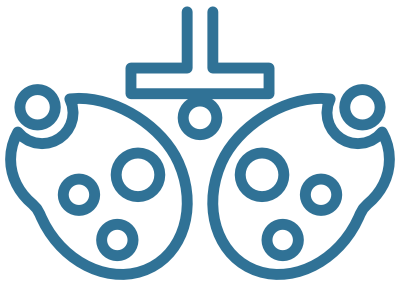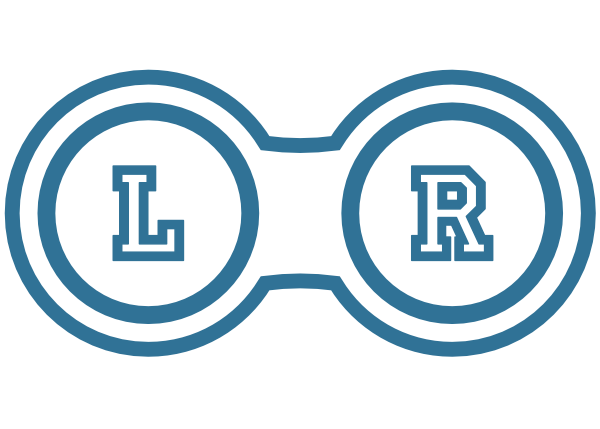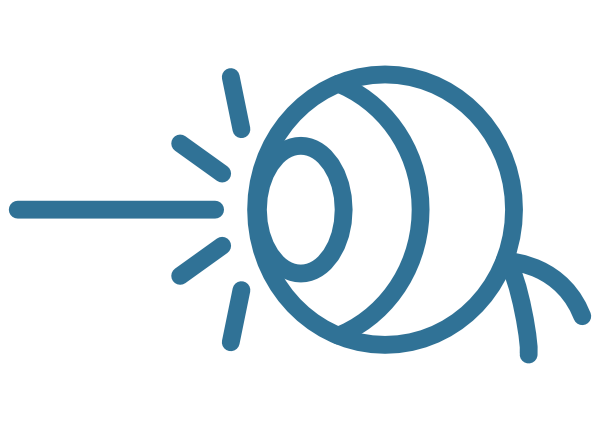Fort Collins Children’s Vision Therapy
 Many children in Northern Colorado experience vision issues beyond common refractive errors like nearsightedness, farsightedness, and astigmatism. These less obvious vision problems include amblyopia (“lazy eye”), eye alignment issues, focusing difficulties, and visual perceptual disorders. If left untreated, these conditions can lead to eyestrain, fatigue, headaches, and even learning difficulties.
Many children in Northern Colorado experience vision issues beyond common refractive errors like nearsightedness, farsightedness, and astigmatism. These less obvious vision problems include amblyopia (“lazy eye”), eye alignment issues, focusing difficulties, and visual perceptual disorders. If left untreated, these conditions can lead to eyestrain, fatigue, headaches, and even learning difficulties.
What Is Vision Therapy?
Vision therapy is a non-surgical, doctor-supervised program designed to correct specific vision problems and enhance visual skills. Unlike glasses or contact lenses, which simply compensate for vision issues, or surgery, which alters eye structure, vision therapy helps retrain the brain and eyes to work together more effectively.
Similar to physical therapy but for the visual system, vision therapy includes customized exercises and techniques that target the eyes and the brain’s vision-processing centers.
How Vision Therapy Works
A personalized vision therapy program may include:
- Lenses, prisms, and filters to improve visual focus
- Computer-based visual activities for eye coordination
- Non-computerized instruments to train the eyes
- Balance boards, metronomes, and other sensory tools to enhance overall visual function
Successful vision therapy involves collaboration between the optometrist, vision therapist, patient, and, in the case of children, their parents.
Here in Fort Collins, Loveland, and Greeley, our goal is to help patients achieve clear, comfortable, and binocular vision when glasses, contact lenses, or surgery alone are not enough.
Proven Benefits of Vision Therapy
Studies have shown that vision therapy can:
- Correct vision problems that interfere with reading and learning
- Reduce eye strain caused by excessive screen time
- Improve focus and eye coordination for better academic performance
Common Vision Problems Treated with Vision Therapy
Vision therapy is effective in treating several conditions, including:
Amblyopia (“Lazy Eye”)
Amblyopia occurs when one eye fails to develop normal visual acuity, often due to strabismus (eye misalignment) or other eye coordination problems.
Strabismus (Eye Turn)
Success in treating strabismus with vision therapy depends on the severity and type of misalignment. A well-documented success is the treatment of convergence insufficiency, a condition where the eyes struggle to stay aligned when reading.
Binocular Vision Disorders
Subtle alignment issues, such as phorias, can cause strain and fatigue during reading. Vision therapy can help correct these problems and improve overall visual comfort.
Eye Movement Disorders
Research has shown that vision therapy enhances the accuracy of eye movements necessary for efficient reading and focus.
Accommodative (Focusing) Disorders
Vision therapy helps improve near-far focusing abilities, reducing strain and fatigue in children and adults.
Additional Conditions
Other vision issues that may benefit from therapy include:
- Visual-perceptual disorders
- Vision problems linked to developmental disabilities
- Vision impairments due to brain injuries or strokes
Vision Therapy & Learning Disabilities
The connection between vision problems and learning disabilities is a topic of debate among eye care professionals.
Many optometrists believe that underlying vision issues can contribute to learning difficulties. By addressing these vision-related challenges through therapy, children may experience improvements in reading, comprehension, and academic performance.
Conversely, some ophthalmologists argue that vision therapy is not an effective treatment for learning disabilities and that there is limited scientific evidence supporting its role in improving learning outcomes.
Is Your Child Struggling with Vision Problems?
If you suspect that your child’s vision issues are affecting their performance in school or sports, the first step is scheduling a comprehensive eye exam.
A standard eye exam only tests distance vision and may not detect issues related to eye tracking, focusing, or visual processing. For a thorough assessment, consider an evaluation by an optometrist specializing in vision therapy and binocular vision.
What to Expect from a Vision Therapy Assessment
Unlike routine eye exams, specialized vision therapy evaluations are more in-depth and test:
- Eye coordination and alignment
- Depth perception
- Focusing ability
- Eye movement efficiency
- Visual-motor and perceptual skills
At the end of the exam, the doctor will provide a detailed diagnosis and recommendations for treatment, including:
- Duration of therapy
- Expected success rates
- Criteria for a successful outcome
- Estimated costs and potential insurance coverage
Most insurance plans do not cover vision therapy, so it’s important to ask about financing options if needed.
Schedule a Vision Therapy Consultation Today
If your child is experiencing vision-related difficulties, early intervention is key. Call 970-204-4020 or click the link on this page to schedule an appointment with our vision therapy specialists in Fort Collins, Loveland, or Greeley.
Colorado Optometry is located at 4786 McMurry Ave., Suite 2A in Fort Collins. The office is conveniently located off Harmony Rd directly across Pleasant Oak Dr. Dr. Wiarda looks forward to meeting you, schedule your appointment today!






